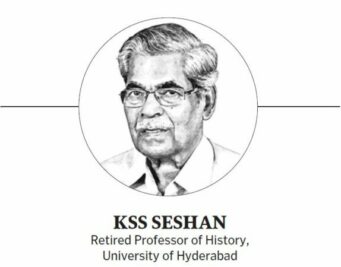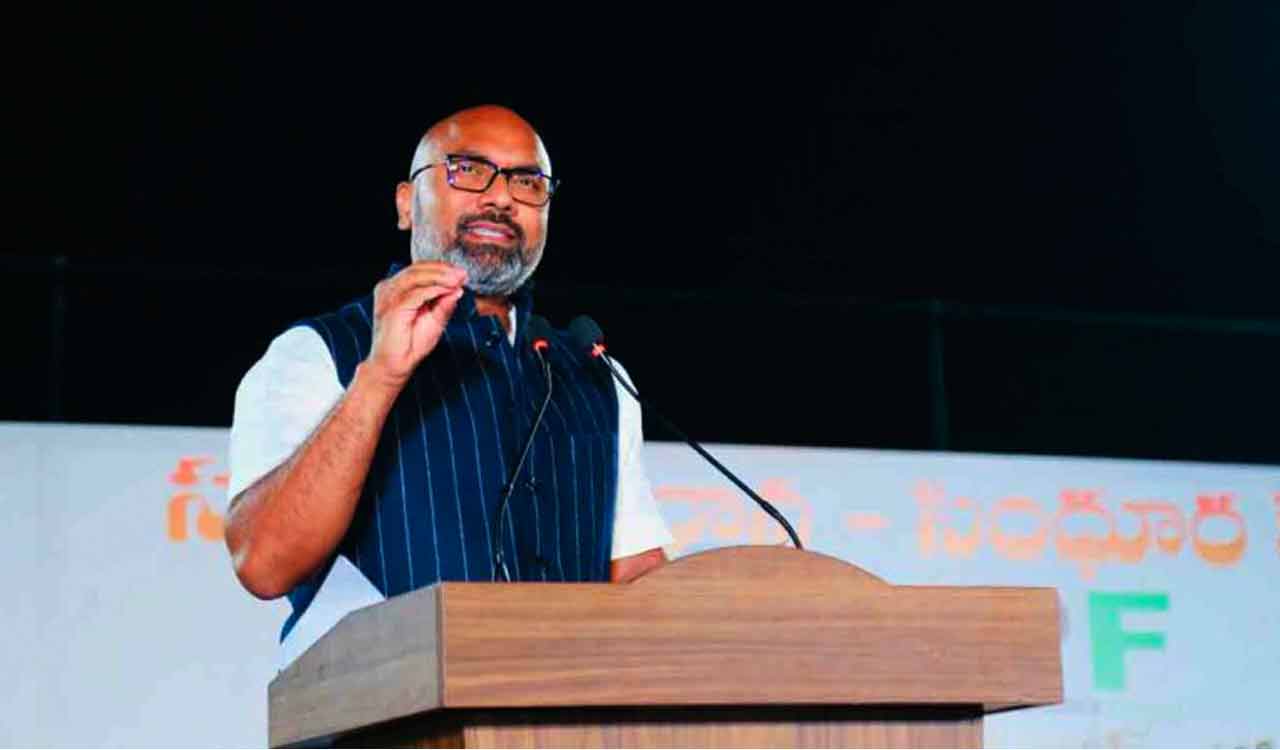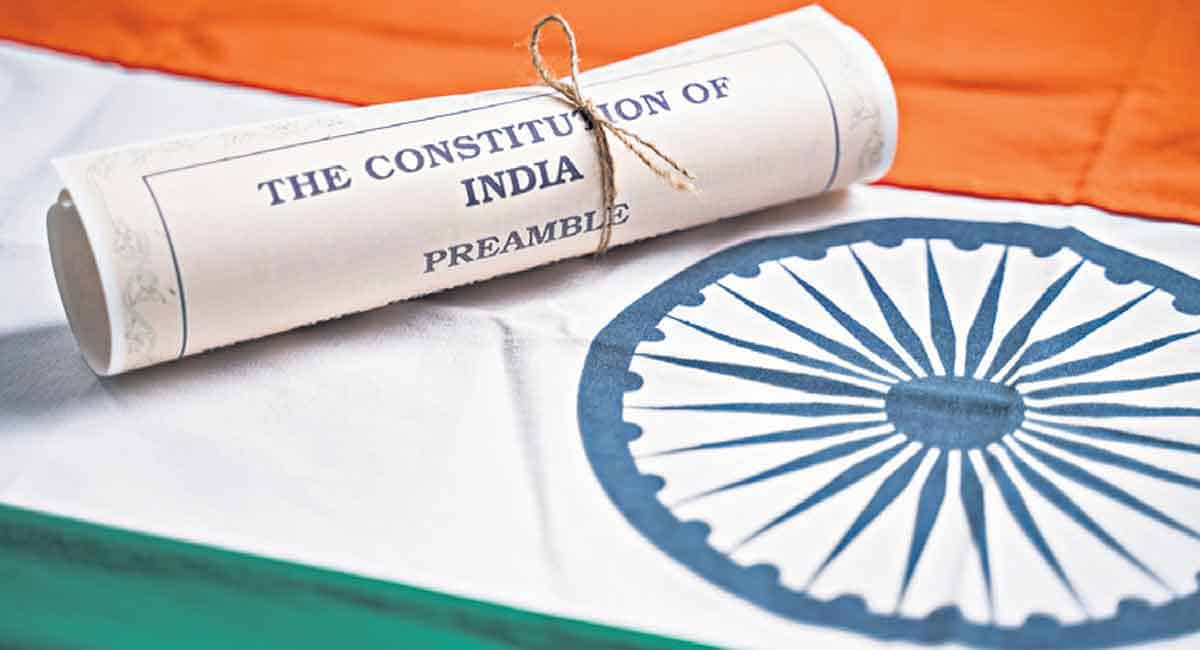Rewind: Revolt of Mahipat Ram
A close confidant of Nizam Sikandar Jah, Raja Mahipat Ram’s was the first and also the last of anti-British revolts in Hyderabad State

By KSS Seshan
While there were a number of anti-British revolts all over the country even during the East India Company administration, British relations with Hyderabad were marked with the utmost cordiality. The British considered Hyderabad’s Nizam as ‘Our Faithful Ally’. He was also accorded the distinction of being addressed as ‘His Exalted Highness’, the only Indian native Prince to be so addressed.
Also Read
However, as against this general perception that the relations between the British and Hyderabad were smooth and cordial, there were, in fact, a few very violent anti-British revolts and movements by individuals and the army with a tacit understanding of the Nizam himself. The earliest of such anti-British revolts in Hyderabad State was in 1808 by Raja Mahipat Ram, an adventurer and a close confidant of the Nizam, Sikandar Jah (1803-1829).
Early Career
Raja Mahipat Ram, who raised the banner of revolt against the British to free the Nizam from all the earlier alliances with the East India Company, was born in Gujarat. His father, Amrit Ram, a Khatri, was a chieftain. Young Mahipat Ram, after receiving training in martial arts, came to Hyderabad in search of patronage and entered the service of Maqbul Ali Khan, a prominent nobleman in the court of Nizam Ali Khan, the then Nizam of Hyderabad (1762-1803). Later, when a French contingent was formed under the command of Joachim Raymond, Mahipat Ram was appointed as Peshkar for the French general, a post he held even under General Piron, who became the French Commander after the untimely death of General Raymond in 1798.
Young Mahipat Ram, after receiving training in martial arts, came to Hyderabad in search of patronage and entered the service of Maqbul Ali Khan, a prominent nobleman in the court of Nizam Ali Khan, the then Nizam of Hyderabad (1762- 1803)
It was an open secret that there had always been an anti-British party, though in a modest way, in the Hyderabad Court since the ascendancy of the British power in the Hyderabad dominions. This party of which Raja Mahipat Ram gradually became a prominent leader was in favour of severing all political and diplomatic alliances with the British. But he vehemently grew dissatisfied at the overindulgence of the British after the signing of the Subsidiary Alliance in 1800 by which a Resident came to be appointed in Hyderabad Court and who turned out to be the “eyes and ears of the British in Hyderabad”.
Adding to it, Mahipat Ram’s personal rivalry with Mir Alam, the Minister (Diwan), whose avid policy was to continue the alliances with the British, pushed him to the party which opposed the British influence in Hyderabad State. In fact, the Nizam Sikandar immediately after ascending the throne, in 1803, thought of appointing Mahipat Ram as his Peshkar, a position next only to the minister in importance. But it was the machinations of the wily Mir Alam and the British Resident that stood in his way. Moreover, George Russell, the Resident, had his own apprehension that Mahipat Ram as Peshkar would be exerting his influence on the Nizam to act against the interests of the British in the Nizam’s court.
Mahipat Ram’s personal rivalry with Mir Alam, the Minister (Diwan), whose avid policy was to continue the alliances with the British, pushed him to the party which opposed the British influence in Hyderabad State
Eventually, with the tacit understanding of Russell and Mir Alam, the Nizam had to send Mahipat Ram away to Berar as its Governor (administrator) as they felt his presence in Nizam’s court would be detrimental to their interests. Even from Berar, Mahipat Ram continued his secret correspondence with the Nizam and tried to convince him that the Company government was the worst enemy and that Mir Alam was hand in glove with the British.
George Barlow, the Governor General, who hitherto followed a non-intervention policy in matters of the native States, as was followed from the days of Cornwallis, decided to give it up for practical purposes. In one of his celebrated minutes, Barlow observed that the continuation of alliances with the Nizam of Hyderabad was essential and that he was eager to maintain that alliance to further the British imperial interests and also to prevent any weakening of the position of the Company administration in India.
He wrote: “If Hyderabad was allowed to sever its alliance with the Company, the other states bearing the same political relations would demand the same right of withdrawal and thus the whole edifice of Company’s political ascendancy would collapse”. So Barlow proposed to adopt measures to directly interfere in the local affairs so as to crush all opposing elements in the Nizam’s court.
Therefore, he suggested that people like Mahipat Ram who were opposed to the British, should be removed from the Nizam’s service and to have only persons around the Nizam who supported the alliances. Captain Sydenham, the British Resident who succeeded George Russell, accordingly met the Nizam on 4 December 1806 and requested him to dismiss Mahipat Ram from his service along with his close compatriots like Ismail Yar Jung. The Nizam, Sikandar Jah, had no other option but to dismiss Mahipat Ram from the Governorship of Berar. Mahipat Ram was banished to Sagar, a small town in the Shahpur taluk of the Marathwada region in the Hyderabad State. Mir Alam had every reason to rejoice as a thorn in his flesh was removed.
In Banishment
Mahipat Ram knew well that the British and their ally Mir Alam were behind his dismissal. He thought of retaliation at an appropriate time. While leaving Berar, he took away with him his close associates, Mohammad Reza Khan Sindhi and Nabi Yar Jung, along with their troops numbering over 2,000.
The Hyderabad forces under Gordon fought a pitched battle on 10 February 1808 on the outskirts of Shorapur against Mahipat Ram who was well-prepared for such a showdown
In Sagar, Mahipat Ram was in search of resources to maintain that large army. He found an opportunity to improve his fortunes by interfering in the affair of the nearby Shorapur, a samsthanam under Hyderabad which at that time was dogged with serious internal squabbles. Shorapur samsthanam was ruled by Pid Nayak and his minister (Diwan) was Thimmappa. Nayak’s distant relative Inukappa was compelled a long time ago to leave Shorapur as he was at loggerheads with Thimmappa.
Mahipat Ram helped Inukappa get back as Diwan, made him pay off all the arrears to the Nizam and also obtained the concurrence of the Nizam on the change of the Diwan. Mahipat Ram’s growing power upset the Resident and Mir Alam. The Resident pressured the Nizam to take military action against Mahipat Ram for his interference.
Direct Action
Major Palmer, an enterprising military leader in the Nizam’s army, who later founded the infamous financial company Palmer & Co in Hyderabad, was sent by Mir Alam, on the advice of the Resident, to Shorapur to make an initial agreement with Mahipat Ram with very harsh conditions. A detachment of the Hyderabad army under Captain Gordon marched to Shorapur to assist Maj Palmer. Mahipat Ram expressed his desire to go to Banaras with a monthly pension of Rs 5,000. He was obviously buying time with such conditions which he was sure Palmer would not concede. In the meantime, he secretly collected a large army and the negotiations ended in a fiasco. Mir Alam instructed Gordon to attack Mahipat Ram without any further delay.
War at Shorapur
The Hyderabad forces, consisting of both infantry and cavalry under Gordon, marched from Narayanpet and a pitched battle was fought on 10 February 1808 on the outskirts of Shorapur. Mahipat Ram who was well-prepared for such a showdown assembled all his loyal troops and exhorted them to fight the Company forces with all their might. It is said that he embraced all the chief officers and instilled patriotic fervour in them. They all swore to defend one another against the alien army with their very blood.
In the fight that ensued, the whole cavalry and the infantry under Gordon were routed by Mahipat Ram’s forces. In the unexpected outcome, several European army men were either killed or wounded. After the combat ended with the defeat, Maj Gordon rode alone towards Mahipat Ram, did ‘salaam’ conceding his defeat but Mahipat Ram was in no mood to excuse the British commander, and immediately charged him with all ferocity and struck him with his sword. Death was instant for Gordon. The Resident, Sydenham, while reporting to the Governor General on the outcome of the battle at Shorapur succinctly termed it as a “fight between the friends of the Company and the friends of the Nizam”.
Nizam’s Sympathy
The fact that the Nizam was eager for the safety of Mahipat Ram even after the battle was evident when he declined to send fresh armies against him and instead wanted to have an agreement with him. Sydenham, suspecting that Mahipat Ram would continue his military operations much to the annoyance of the British power in Hyderabad dominions after his stunning success at Shorapur, convinced the Nizam to send a large contingent to prevent Mahipat Ram from entering Berar where he still retained great influence and sympathy.
Mahipat Ram was forced to move northwards with his armies. Pursued by the forces, he crossed the Godavari, entered the Maratha territory and sought shelter under the Holkar chief of the Poona region. Mahipat Ram and his brother Sripat Ram, along with a few trusted generals like Mohammad Reza Khan, were well received by the Holkar chief under whose patronage they settled there. The Nizam Sikandar Jah was relieved when he came to know that Mahipat Ram reached the Holkar chief and was safe. Nothing is known about Mahipat Ram after he left Hyderabad dominions.
Legacy of Revolt
The importance of the revolt of Mahipat Ram lies not so much in the enormity of the revolt per se, but in spirit as it was the first as well as the last of such revolts against the growing influence of the British in Hyderabad as well as against the continuation of the harsh alliances they had concluded with the earlier Nizam. His rivalry with Mir Alam, who was supported by the British, turned him from a friend to a foe of the British alliances. His banishment from Berar to Sagar made him a rebel and he decided to take to arms. He heroically faced the armies, won the war at Shorapur and even killed the commander, Maj Gordon.
It was an open secret that there had always been an anti-British party, though in a modest way, in the Hyderabad Court since the ascendancy of the British power in the Hyderabad dominions
Even after reaching the Holkar territory, Mahipat Ram consistently advised through correspondence that he should try every nerve to declare the British alliances null and void. When Mahipat Ram came to know of the death of Mir Alam, in December, 1808, he even sent a secret letter to the Nizam that he would be glad to come with his army and with the support of Holkar help the Nizam against the British presence in Hyderabad. In another letter, he advised the Nizam “to reclaim the directions of all affairs in his own hands”. But as most of his letters were intercepted by the British spies, the Nizam practically lost every contact with him. After Mahipat Ram’s revolt, the Nizam came to realise that he must accept the situation as it was, and reconciled to live with the British domination in his court.
There is every need today that in Hyderabad, a fitting memorial is set up to commemorate the uncompromising anti-British sentiment and the reckless valour that Mahipat Ram exhibited to protect the interests of Hyderabad from the British, unmindful of his own life and career. The saga of his sacrifice merits such recognition by the generations to come.

- Tags
- KSS Seshan
- Mahipat Ram
- revolt
Related News
-
Cartoon Today on December 25, 2024
7 hours ago -
Sandhya Theatre stampede case: Allu Arjun questioned for 3 hours by Chikkadpallly police
8 hours ago -
Telangana: TRSMA pitches for 15% school fee hike and Right to Fee Collection Act
8 hours ago -
Former Home Secretary Ajay Kumar Bhalla appointed Manipur Governor, Kerala Governor shifted to Bihar
8 hours ago -
Hyderabad: Organs of 74-year-old man donated as part of Jeevandan
8 hours ago -
Opinion: The China factor in India-Nepal relations
9 hours ago -
Editorial: Modi’s Kuwait outreach
9 hours ago -
Telangana HC suspends orders against KCR and Harish Rao
10 hours ago



